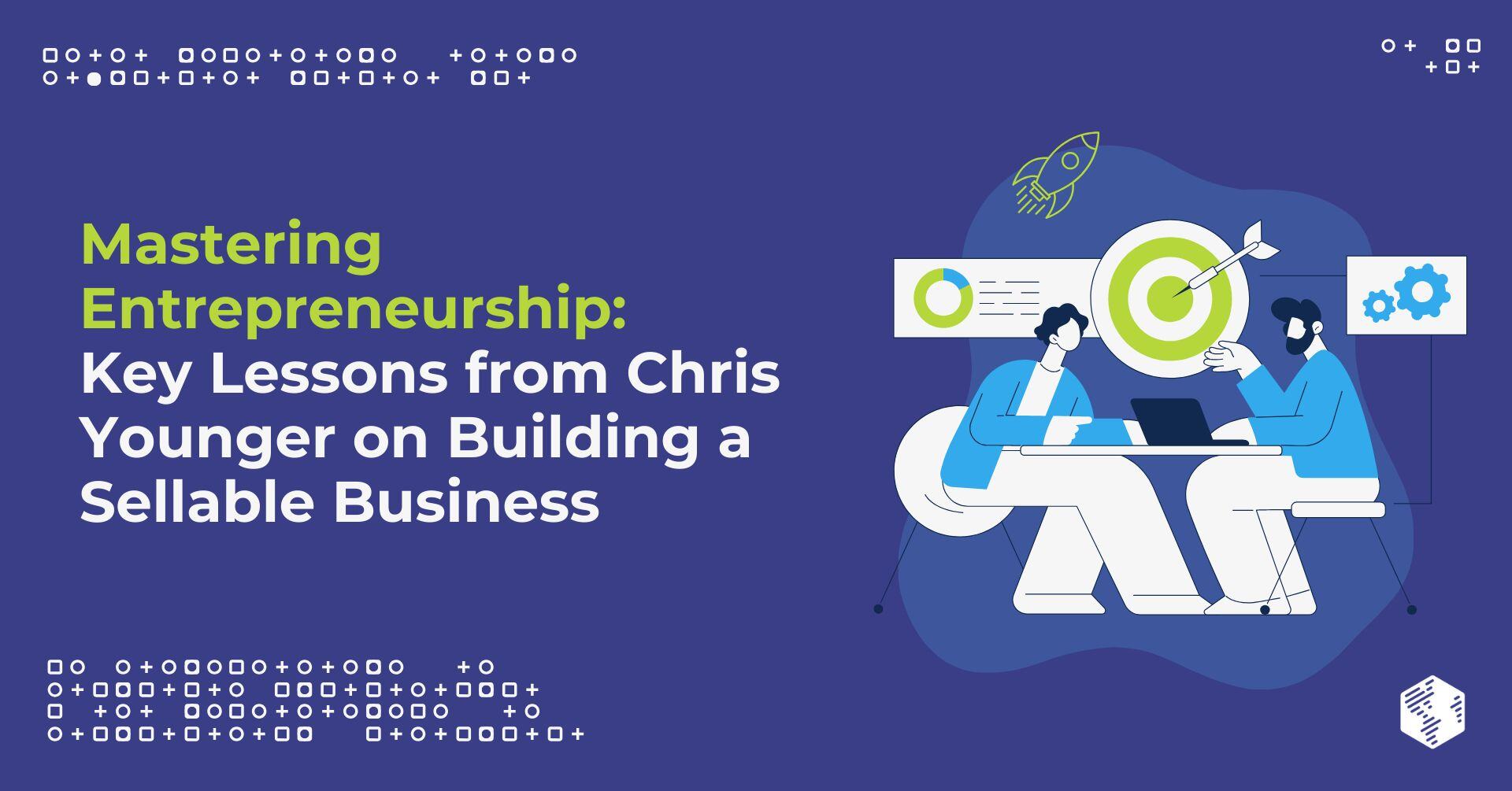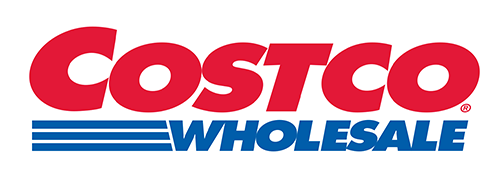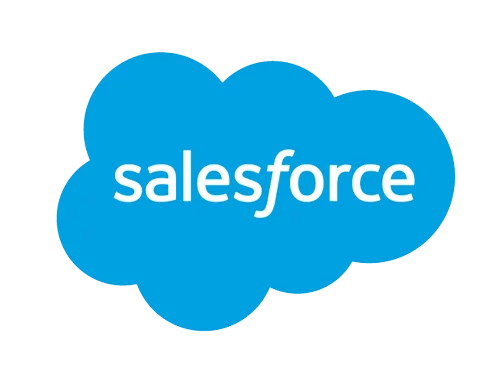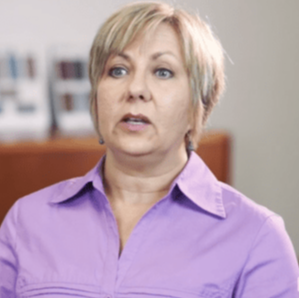Mastering Entrepreneurship: Key Lessons from Chris Younger on Building a Sellable Business

In the ever-evolving landscape of entrepreneurship, building a sellable business remains a coveted goal for many founders. Chris Younger, the co-founder of Class VI Partners and author of the renowned book "Harvest: The Definitive Guide to Selling Your Company," offers invaluable insights into this pursuit. With a wealth of experience in founding, scaling, and exiting successful ventures, Younger's practical wisdom serves as a guiding light for entrepreneurs striving to create companies with enduring value.
Through his investment banking firm, Class VI Partners, and his interactions with numerous entrepreneurs, Younger has gained a deep understanding of the critical factors that contribute to a business's saleability. From mitigating risks and diversifying revenue streams to fostering a strong team and embracing ethical practices, his lessons provide a comprehensive blueprint for building a sellable business.
In this article, we delve into Younger's entrepreneurial journey, uncover the key traits of successful entrepreneurs, and explore his strategies for maximizing business value. Whether you're a seasoned entrepreneur or just starting, Younger's wisdom offers a roadmap to navigate the complexities of scaling a company while keeping an eye on the ultimate goal: creating a sellable asset that can secure your financial future and leave a lasting legacy.
Chris Younger's Entrepreneurial Journey
Chris Younger's entrepreneurial odyssey is a testament to perseverance, adaptability, and a relentless pursuit of excellence. With a distinguished educational background, including degrees from Miami University, Harvard Law School, and the London School of Economics, Younger embarked on a career that would ultimately lead him to the pinnacle of entrepreneurial success.
His first foray into the business world was marked by the sale of a communications company he had co-founded. While this initial exit provided him with financial resources, Younger's entrepreneurial spirit remained undeterred. Joined by his business partner, David Tolson, he ventured into the investment banking realm, establishing Class VI Partners in the midst of the 2005 recession.
The early years of Class VI Partners were a crucible of challenges, with the first deal not closing until 2008, and the subsequent economic downturn further compounding the difficulties. Younger and Tolson navigated these turbulent times with unwavering determination, subsisting on what Younger humorously refers to as the "ramen noodle equivalent" for several years.
However, their perseverance paid off, and as the economy recovered in 2010, Class VI Partners began to gain momentum. Younger attributes much of their success to the joy he and his partner derived from working with entrepreneurs, a passion that fueled their commitment to enabling the entrepreneurial spirit.
Overcoming Adversity and Embracing Resilience
Younger's journey serves as a powerful reminder of the resilience required to weather the storms that entrepreneurs inevitably face. His candid recollection of the lean years, where financial constraints forced him and his partner to subsist on meager means, resonates with the challenges that many founders encounter.
Yet, it was during these trying times that Younger and Tolson's unwavering commitment to their vision truly shone. They found solace and motivation in the very act of working with entrepreneurs, a pursuit that transcended mere financial gain and became a source of fulfillment.
This ability to maintain perspective and find joy in the journey, even amidst adversity, is a hallmark of successful entrepreneurs. Younger's story underscores the importance of cultivating a passion for one's work, as it serves as a wellspring of resilience and perseverance when faced with inevitable obstacles.
Lessons Learned from Entrepreneurship
Younger's entrepreneurial journey has been a fertile ground for valuable lessons, many of which he generously shares with aspiring and seasoned entrepreneurs alike. These lessons, distilled from his experiences and interactions with countless business owners, offer a roadmap for navigating the complexities of building a sellable business.
Perseverance Through Tough Times
One of the resounding lessons that Younger imparts is the necessity of perseverance in the face of adversity. As he recounts, the early years of Class VI Partners were marked by financial challenges, with the first deal not materializing until 2008, and the subsequent recession further exacerbating the difficulties.
However, Younger and his partner remained steadfast in their commitment, fueled by their passion for working with entrepreneurs and enabling the entrepreneurial spirit. This unwavering determination, coupled with a willingness to make sacrifices and subsist on meager means, ultimately paved the way for their eventual success.
Younger's experience underscores the importance of cultivating a deep-rooted commitment to one's vision and a resilient mindset capable of weathering storms. Entrepreneurship is a journey fraught with obstacles, and the ability to persevere through tough times is a defining characteristic of those who emerge victorious.
Importance of Building a Great Team
Another pivotal lesson that Younger emphasizes is the critical role of building a strong and capable team. As he reflects on the regrets expressed by the entrepreneurs he has worked with, a common theme emerges: the failure to hire and empower a talented team early enough in the business's lifecycle.
Many founders, driven by a sense of ownership and a belief that no one can execute tasks as well as they can, delay the process of assembling a robust team. However, Younger underscores the importance of recognizing when the business has outgrown the founder's capacity to manage every aspect single-handedly.
By bringing on skilled professionals and delegating responsibilities, entrepreneurs can alleviate the founder's dependency on the business, thereby mitigating a significant risk factor that can degrade the company's value. A strong team not only enhances operational efficiency but also contributes to the business's scalability and saleability.
Ethical Business Practices: Prioritizing Client Interests
In the realm of investment banking, where transactions can often be driven by short-term gains, Younger and his team at Class VI Partners have adopted a refreshingly ethical approach. They prioritize their clients' best interests over immediate profits, even if it means advising against a deal that may not benefit the client in the long run.
This commitment to ethical business practices has not only fostered a deep sense of trust and loyalty among their clients but has also contributed to the firm's long-term success. By putting the client's needs first and providing candid advice, Class VI Partners has cultivated a reputation for integrity and accountability.
Younger's emphasis on ethical conduct resonates with the growing demand for transparency and responsible business practices in today's marketplace. Entrepreneurs who prioritize ethical decision-making and place their clients' interests at the forefront are more likely to build enduring relationships and create sustainable value, both of which are essential ingredients for a sellable business.
Key Traits of Successful Entrepreneurs
Through his extensive interactions with entrepreneurs across various industries, Younger has identified several common traits that distinguish those who achieve remarkable success. These characteristics serve as a blueprint for aspiring entrepreneurs and a source of inspiration for those already on the entrepreneurial journey.
Commitment to the Vision
One of the most striking traits that Younger has observed in successful entrepreneurs is their unwavering commitment to their vision. He recounts stories of business owners who faced near-death experiences with their companies, yet their fear of failure and deep-seated determination propelled them forward.
These entrepreneurs exhibited an unshakable conviction in their vision, fueled by a profound sense of personal satisfaction and identity intertwined with their businesses. They were willing to do whatever it took to ensure their ventures did not falter, exhibiting a level of ingenuity and tenacity that Younger finds truly remarkable.
This commitment to the vision is a driving force that enables entrepreneurs to navigate the inevitable challenges and setbacks that accompany any entrepreneurial endeavor. It is a trait that separates those who merely dream of success from those who actively pursue it, overcoming obstacles and embracing the risks inherent in their pursuits.
Resilience and Innovation
Closely tied to the commitment to the vision is the trait of resilience, coupled with a capacity for innovation. Younger shares anecdotes of entrepreneurs who faced near-failure moments, only to emerge triumphant through sheer perseverance and creative problem-solving.
One such story involves a single mother who founded her business out of necessity, seeking a way to balance her professional life with the demands of raising her children, one of whom was born prematurely. Despite the challenges she faced, this entrepreneur persevered, ultimately growing her venture to a point where Younger's firm assisted in its sale to a private equity group. Another compelling tale recounts an entrepreneur who, inspired by his father's unconventional business ventures, embarked on his own entrepreneurial journey with his brother. Facing initial setbacks and resistance from potential customers, they adapted their approach, pivoting their marketing strategies and business model until they achieved success.
These narratives underscore the importance of resilience and the ability to innovate in the face of adversity. Successful entrepreneurs are not deterred by failures or roadblocks; instead, they embrace them as opportunities to learn, adapt, and evolve, ultimately emerging stronger and more capable than before.
How to Build a Sellable Business

While the entrepreneurial journey is fraught with challenges and uncertainties, Younger's experience and insights provide a roadmap for building a sellable business – one that not only generates revenue and profitability but also possesses the characteristics that make it an attractive acquisition target.
Reduce Founder Dependency
One of the most significant risk factors that can degrade a business's value is an excessive reliance on the founder. Younger emphasizes the importance of recognizing when the company has outgrown the founder's capacity to manage every aspect single-handedly and the necessity of assembling a skilled team to take on various responsibilities.
By hiring talented professionals and delegating tasks, entrepreneurs can alleviate the founder's dependency on the business, mitigating a critical risk factor that can hinder the company's saleability. A strong team not only enhances operational efficiency but also contributes to the business's scalability and long-term sustainability.
Younger cites the regrets expressed by many entrepreneurs he has worked with – their failure to hire and empower a capable team early enough in the business's lifecycle. This lesson underscores the importance of recognizing when the company has outgrown the founder's capacity and the need to embrace the delegation of responsibilities as a strategic imperative.
Diverse Revenue Streams
Another crucial factor in building a sellable business is the diversification of revenue streams. Younger cautions against the risks associated with relying too heavily on a single product, customer base, or project, as this concentration can introduce significant vulnerabilities.
Investors seek predictable and resilient cash flows when evaluating a business's value, and a diverse revenue portfolio can mitigate the impact of market fluctuations or industry-specific disruptions. By diversifying revenue sources, entrepreneurs can enhance the stability and attractiveness of their businesses, making them more appealing to potential buyers.
Younger's insights are particularly relevant in the post-COVID-19 era, where businesses heavily reliant on specific verticals, such as hospitality, faced severe challenges. Entrepreneurs who proactively diversify their revenue streams not only reduce their exposure to such risks but also position their companies as more resilient and adaptable to changing market conditions.
Proactive Risk Management
In addition to addressing specific risk factors, Younger and his team at Class VI Partners have developed a unique tool called Co-Pilot, designed to help entrepreneurs identify and mitigate potential risks before they manifest. This proactive approach to risk management is rooted in the firm's mission to enable the entrepreneurial spirit and empower business owners to make informed decisions.
Co-Pilot is an automated application that mimics the interview process typically conducted by Younger's team, uncovering specific risks within a business and providing a comprehensive report. This report not only identifies areas of exposure but also offers strategies and prioritized recommendations for mitigating those risks.
By leveraging Co-Pilot, entrepreneurs can gain a deeper understanding of their business's vulnerabilities and take proactive steps to address them. This proactive approach to risk management is particularly valuable for those seeking to build a sellable business, as it allows them to address potential issues that could degrade the company's value before they become significant obstacles.
Valuing and Selling a Business
For entrepreneurs with aspirations of eventually selling their businesses, understanding the valuation process and preparing for a successful exit are critical components of the journey. Younger's expertise in investment banking and his experience guiding numerous companies through successful transactions offer invaluable insights into this pivotal phase.
Understanding Business Valuation
When evaluating a business's value, investors consider a multitude of factors that extend beyond mere financial metrics. Younger emphasizes the importance of understanding these criteria and aligning the business's operations and strategies to meet investor expectations.
Key factors that influence a business's valuation include the strength and diversity of its revenue streams, the scalability of its operations, the caliber of its management team, and the mitigation of potential risks. Investors seek businesses that demonstrate resilience, predictability, and long-term growth potential, characteristics that can significantly impact the valuation and attractiveness of a potential acquisition.
By gaining a comprehensive understanding of these valuation drivers, entrepreneurs can make informed decisions that enhance their businesses' appeal to potential buyers, ultimately maximizing the potential return on their investments.
The Importance of Preparing Early
One of the most significant pieces of advice Younger offers is the importance of preparing for an eventual sale years in advance. He emphasizes that by the time many business owners seek his firm's assistance, certain risks and issues have already taken root, making it more challenging to address them effectively.
Younger's experience has shown that the most successful exits often involve businesses that have proactively addressed potential risks and implemented strategies to enhance their saleability well before the actual sale process begins. This proactive approach not only maximizes the business's value but also streamlines the transaction process, reducing potential obstacles and delays.
To illustrate this point, Younger shares the story of a woman who founded her business out of necessity, eventually growing it to a point where it attracted the interest of a private equity group. By preparing early and addressing potential risks, she was able to navigate the sale process smoothly and secure a favorable outcome.
Younger's advice underscores the importance of adopting a long-term mindset and treating the eventual sale of the business as a strategic objective from the outset. By proactively addressing potential risks, diversifying revenue streams, and implementing best practices for scalability and saleability, entrepreneurs can position their businesses for maximum value and a smoother exit process.
Chris's Advice for Entrepreneurs
Throughout his entrepreneurial journey and his interactions with countless business owners, Chris Younger has distilled a wealth of wisdom and practical advice. These insights offer a guiding compass for entrepreneurs navigating the complexities of building a sellable business while maintaining a balanced and fulfilling life.
Focus on Balance
One of the most poignant pieces of advice Younger offers is the importance of maintaining balance and perspective. He cautions against the tendency to take the highs and lows of entrepreneurship too seriously, emphasizing the need to prioritize personal relationships and well-being alongside business pursuits.
Younger's mentor once advised him, "Never make the highs too high and never make the lows too low," a sentiment that resonates deeply with the roller coaster of emotions and challenges that entrepreneurs often face. He acknowledges the temptation to sacrifice personal relationships and health in the pursuit of business success but underscores the importance of maintaining a holistic perspective.
By striking a balance between professional ambitions and personal fulfillment, entrepreneurs can cultivate the resilience and emotional fortitude necessary to navigate the inevitable obstacles that arise. Younger's advice serves as a reminder that while building a successful business is a noble pursuit, it should not come at the expense of the very relationships and well-being that provide meaning and purpose to one's life.
Continuous Learning and Mentorship
Another invaluable piece of advice Younger offers is the importance of embracing continuous learning and seeking guidance from mentors and experienced professionals. He acknowledges that the entrepreneurial journey is fraught with challenges and setbacks, and each of these experiences presents an opportunity for growth and personal development.
Younger encourages entrepreneurs to approach these challenges with a growth mindset, viewing mistakes not as failures but as valuable lessons that can inform future decisions and strategies. He advocates for seeking out mentors and industry experts who can offer guidance and share their own experiences, providing a broader perspective and insights that can accelerate one's entrepreneurial success.
By embracing continuous learning and seeking mentorship, entrepreneurs can not only avoid repeating common pitfalls but also gain access to proven strategies and best practices that can help them navigate the complexities of building a sellable business. Younger's advice resonates with the notion that true success lies not in the avoidance of mistakes but in the ability to learn from them and adapt accordingly.
Chris Younger's entrepreneurial journey and the wisdom he has garnered through his experiences offer a comprehensive blueprint for building a sellable business. From persevering through tough times and assembling a talented team to embracing ethical practices and proactively managing risks, Younger's lessons provide a roadmap for navigating the complexities of entrepreneurship.
By cultivating the key traits of successful entrepreneurs, such as an unwavering commitment to the vision and a capacity for resilience and innovation, aspiring business owners can position themselves for long-term success. Additionally, Younger's emphasis on understanding business valuation, preparing for an eventual sale years in advance, and maintaining a balanced perspective underscores the importance of adopting a strategic and holistic approach to entrepreneurship.
As entrepreneurs embark on their journeys, Younger's insights serve as a guiding light, illuminating the path to building not just a profitable business but a sellable asset that can secure their financial future and leave a lasting legacy. By embracing these lessons and applying them to their own ventures, entrepreneurs can increase their chances of achieving the ultimate goal: creating a company that not only generates revenue but also possesses the characteristics that make it an attractive acquisition target. Ultimately, Chris Younger's wisdom and practical advice offer a comprehensive roadmap for entrepreneurs seeking to build businesses that are not only profitable but also sellable assets. By embracing his lessons on perseverance, team-building, ethical practices, risk management, and maintaining a balanced perspective, entrepreneurs can navigate the complexities of the entrepreneurial journey and position their ventures for long-term success.
Younger's emphasis on continuous learning and seeking guidance from mentors underscores the importance of humility and a growth mindset. Even seasoned entrepreneurs can benefit from the insights and experiences of others, as each challenge presents an opportunity for personal and professional development.
Furthermore, Younger's insights into the valuation process and the importance of preparing for an eventual sale years in advance highlight the need for a strategic and forward-thinking approach. By proactively addressing potential risks, diversifying revenue streams, and implementing best practices for scalability and saleability, entrepreneurs can enhance their businesses' appeal to potential buyers and maximize the potential return on their investments.
As entrepreneurs embark on their journeys, they can draw inspiration from Younger's own story of perseverance and resilience. His ability to navigate the challenges of starting a business during a recession and emerge triumphant serves as a testament to the power of unwavering determination and a passion for one's craft.
Ultimately, Younger's teachings offer a comprehensive blueprint for building a sellable business while maintaining a balanced and fulfilling life. By embracing his lessons and applying them to their own ventures, entrepreneurs can increase their chances of achieving the ultimate goal: creating a company that not only generates revenue but also possesses the characteristics that make it an attractive acquisition target, securing their financial future and leaving a lasting legacy.























